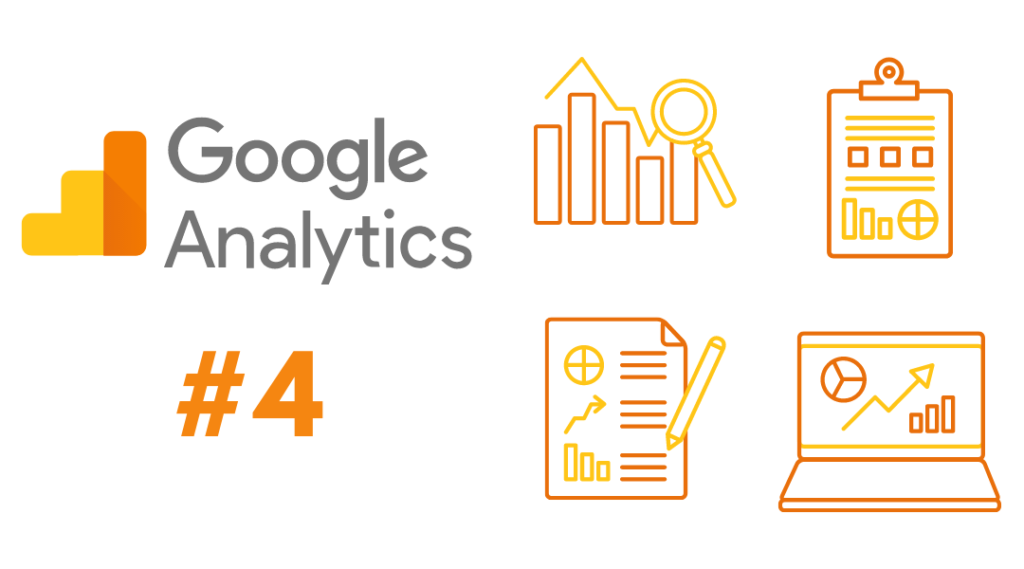Tabla de contenido
Google Analytics 4, commonly referred to as GA4, represents the future of measurement. This advanced version of Google’s popular analytics tool has been specifically crafted to thrive in an increasingly privacy-oriented world and anticipate a future without cookies. By focusing on advanced analytics, GA4 leverages machine learning to gain profound insights into the user experience without relying on personal data, thereby upholding user privacy.
GA4 introduces a new type of property that collects event-based data from websites and applications, enabling a more comprehensive understanding of the customer journey. Unlike Universal Analytics, which relied on session-based data, GA4 employs event-based data to provide a more detailed perspective on user interactions with your website or application.
Moreover, GA4 offers enhanced privacy controls, such as cookie-free measurement and behavioral and conversion modeling. These controls enable GA4 to deliver comprehensive analyses while adhering to increasingly rigorous privacy standards. Additionally, GA4 incorporates predictive capabilities that provide guidance without the complexity of intricate models, and it integrates directly with media platforms to drive actions on your website or application.
GA4 vs. Universal Analytics: A Paradigm Shift
The transition from Universal Analytics to Google Analytics 4 marks a fundamental shift in data collection and analysis. GA4 centers its measurement approach on user interactions, utilizing artificial intelligence and revamped reports to analyze the customer journey across the entire customer lifecycle, spanning acquisition, interactions, conversion, and retention.
Furthermore, Google has announced that Universal Analytics will cease processing data as of July 1, 2023, urging users to migrate to Google Analytics 4 as soon as possible. Existing Universal Analytics accounts will no longer receive data after this date. Therefore, it is crucial to familiarize yourself with GA4 and commence data collection in a new Google Analytics 4 property promptly. This will enable the gathering of valuable historical information necessary for measuring results over time once Universal Analytics discontinues data processing.
If a new GA4 property is not created by March 2023, Analytics will automatically generate a GA4 property linked to the existing Universal Analytics property, providing equivalent basic functionality. This streamlined process aims to facilitate the transition for those who have not yet made the switch to GA4.
In summary, GA4 represents the next generation of Google Analytics, designed to adapt to a cookie-free future while respecting user privacy and delivering comprehensive analytics. With Universal Analytics phasing out data processing in the near future, transitioning to GA4 is essential to stay up to date with your website or application analytics.

The Urgency of Migration
In today’s digital landscape, tracking and analyzing user behavior are vital for the success of online businesses. Google Analytics has traditionally been the preferred tool for many, but now Google is implementing a significant change. Starting from July 1, 2023, data processing in Universal Analytics properties will be discontinued by Google. This means that failing to migrate to Google Analytics 4 (GA4) will result in data loss.
Why is this transition so imperative? GA4 represents the next evolutionary step for Google Analytics. It not only employs a distinct data collection methodology compared to Universal Analytics but also introduces a plethora of new features and capabilities that can empower your business to gain deeper and more comprehensive insights into your users.
GA4 adopts an event-based approach to data collection, enabling more granular tracking of user interactions. Furthermore, it offers enhanced measurement capabilities, the ability to connect Universal Analytics (UA) and GA4 properties, and the option to reuse existing site tags. Moreover, GA4 is specifically designed to be adaptable to future privacy regulations and industry changes, ensuring your business stays compliant and ahead of the curve.
The Transition to GA4: A Detailed Walkthrough
Creation of a GA4 Property
- Make sure you have the Editor or Administrator role for the account in Google Analytics.
- Click on Admin (bottom left).
- In the account column, make sure that your desired account is selected.
- In the property column, select the UA property that currently collects data for your website.
- In the property column, click GA4 Setup Assistant. It is the first option in the property column.
- Click “Get Started” under “I want to create a new Google Analytics 4 property”.
Google Tag Configuration
- Select “Create and continue” to continue to the Google tag setup page, or “Create property” if Analytics can reuse your existing Universal Analytics tagging for your GA4 property.
Completion of the GA4 Property Configuration
- Once you have finished setting up your Google Tag, you will see a message that says “You have successfully connected your properties” at the top of your GA4 Property Setup Wizard page.
- Make a note of the name of your GA4 property so you can find it later.
- Click on “View your GA4 property” to open the Setup Wizard on your new GA4 property.
- Follow the instructions in the Setup Wizard to finish configuring your GA4 property.
- Verify that data is being collected by browsing your website and selecting Realtime from the report navigation.
Migration of your Universal Analytics Goals
- Go back to the Configuration Wizard page and look for “Configure conversions”.
- Click “Import from Universal Analytics” and select the goals you would like to recreate as conversion events in your new Google Analytics 4 property.
Activation of Google Signals
- In the Setup Wizard, find “Enable Google Signals” and click on the Actions menu to the right of the row.
- Click “Manage Google Signals”, then “Get Started”.
- On the “Activate Google Signals” page, click “Continue”, then “Activate”.
Can I migrate my configuration and history?
Transitioning to Google Analytics 4 (GA4) is a crucial step for businesses serious about data analytics. However, a common question that arises is whether it’s possible to migrate the configuration and history from Universal Analytics (UA) to GA4. The answer is somewhat intricate.
In terms of configuration, yes, you can migrate the majority of your UA settings to GA4. This includes transferring UA targets, which can be recreated as conversion events in your new GA4 property. Nevertheless, it’s important to note that certain UA-specific configurations, such as report views, cannot be migrated due to the fundamentally different data model and reporting structure in GA4.
When it comes to your data history, the situation differs. When you create a new GA4 property, it starts collecting data from scratch. Consequently, your historical UA data won’t be accessible in your GA4 property. However, it’s essential to emphasize that your historical data is not lost. You can still access it in your UA property, which will continue to exist even after configuring your GA4 property.
Therefore, for a period of time, you may need to utilize both UA and GA4 in parallel. UA will grant you access to your historical data, while GA4 will enable you to collect and analyze new data with its enhanced capabilities.
To summarize, while you can migrate most of your UA configurations to GA4, migrating your historical data is not feasible. However, with careful planning and a well-executed transition, you can minimize any disruption and ensure that your business continues to extract valuable insights from your Google Analytics data.







